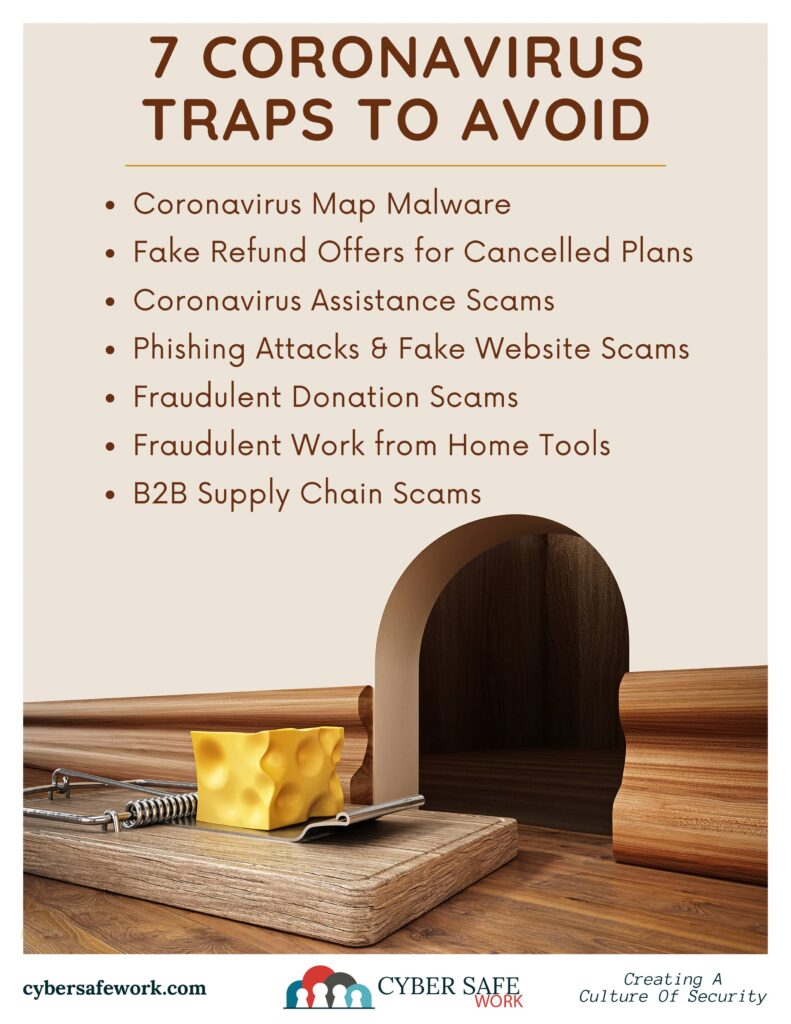During vulnerable times, scammers come out in full force to take advantage of people who are scared, confused, or just plain worn out. This Coronavirus pandemic is no different. Here are 7 traps to avoid, keeping you safer online.
- Coronavirus Map Malware – Be wary of maps used to track the spread of Coronavirus. Scammers have created very real-looking maps that infect user computers with malware.
- Fake Refund Offers for Cancelled Plans – Summer vacations will look very different this year. Scammers are contacting people via phone, email, and text offering to refund money for cancelled plans. Rather than hand over any information via phone, text, or email, find a verified number to call just to make sure that the offer is legitimate.
- Coronavirus Assistance Scams – Many people have suffered job losses due to illness and business closures to flatten the curve. With so many people needing financial assistance, scammers have capitalized on this need. Double-check to whom you’re giving information, especially during a crisis such as this one. The FTC urges consumers not to respond to texts, emails or calls about checks from the government.
- Phishing Attacks and Fake Website Scams – Be on the lookout for an increase in phishing emails or text messages. Do not click on links unless you are absolutely sure that the sender is trusted and you can verify where the link goes. Not only are scammers increasing their phishing emails and texts, they are creating fake websites, which look like reputable websites, to collect personal information from unsuspecting users.
- Fraudulent Donation Scams – With so many people in need, those who can afford to want to donate! However, scammers have set up elaborate fake donation scams to collect money for generous people. The scammer do not help anyone but themselves. The FTC shares guidelines on how to donate safely and avoid charity scams.
- Fraudulent Work from Home Tools – Even as states begin to ease restrictions, telework is encouraged. Make sure that you are using safe and reputable work-from-home tools and software.
- B2B Supply Chain Scams – As employers are prepping to bring employees back to the office, they are being forced to source new and in-demand products to keep employees safe. Make sure to vet any personal protective equipment supplier thoroughly to avoid sending money to scammers with no products to sell.
CourseVector grants permission to use this artwork for any non-commercial purpose as long as the CourseVector contact information remains, as is, on any reproduction or use.


